Liberia: Called to bring healing, even when times are tough
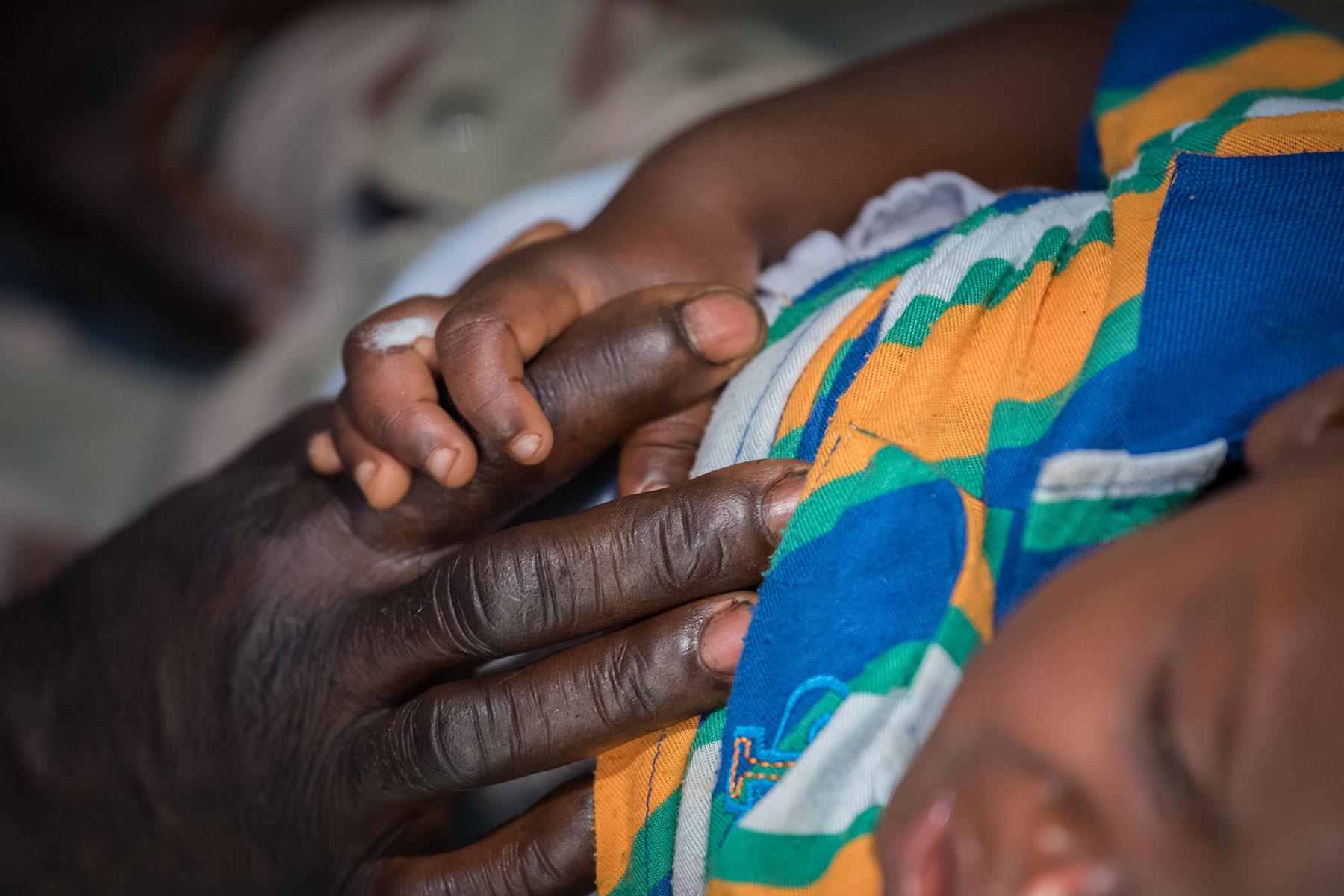
A young boy receives emergency treatment at the Ganta United Methodist Hospital in Liberia. All photos: LWF/Albin Hillert
Waking the Giant implementation strengthens church ministry in Liberia
(LWI) – It’s early November, and the Liberia Council of Churches (LCC) has just hosted a global summit on the Sustainable Development Goals, looking to strengthen church projects that support the United Nations’ 2030 Agenda.
Alongside the United States, Colombia and Tanzania, Liberia is one of four focus countries of the Lutheran World Federation (LWF) initiative Waking the Giant, an effort to coordinate, map, and strengthen church engagement for the SDGs around the world.
In the field of health, churches in Liberia contribute almost 60%, and when it comes to education the churches contribute more than 60%.
“In the field of health, churches in Liberia contribute almost 60%, and when it comes to education the churches contribute more than 60%. Daily, you have students in school, you have hospitals running – and it simply means that churches are relevant when you talk about the UN 2030 Agenda,” says Rev. St John York, national coordinator for Waking the Giant in Liberia.
A country young to peace, rife with challenges
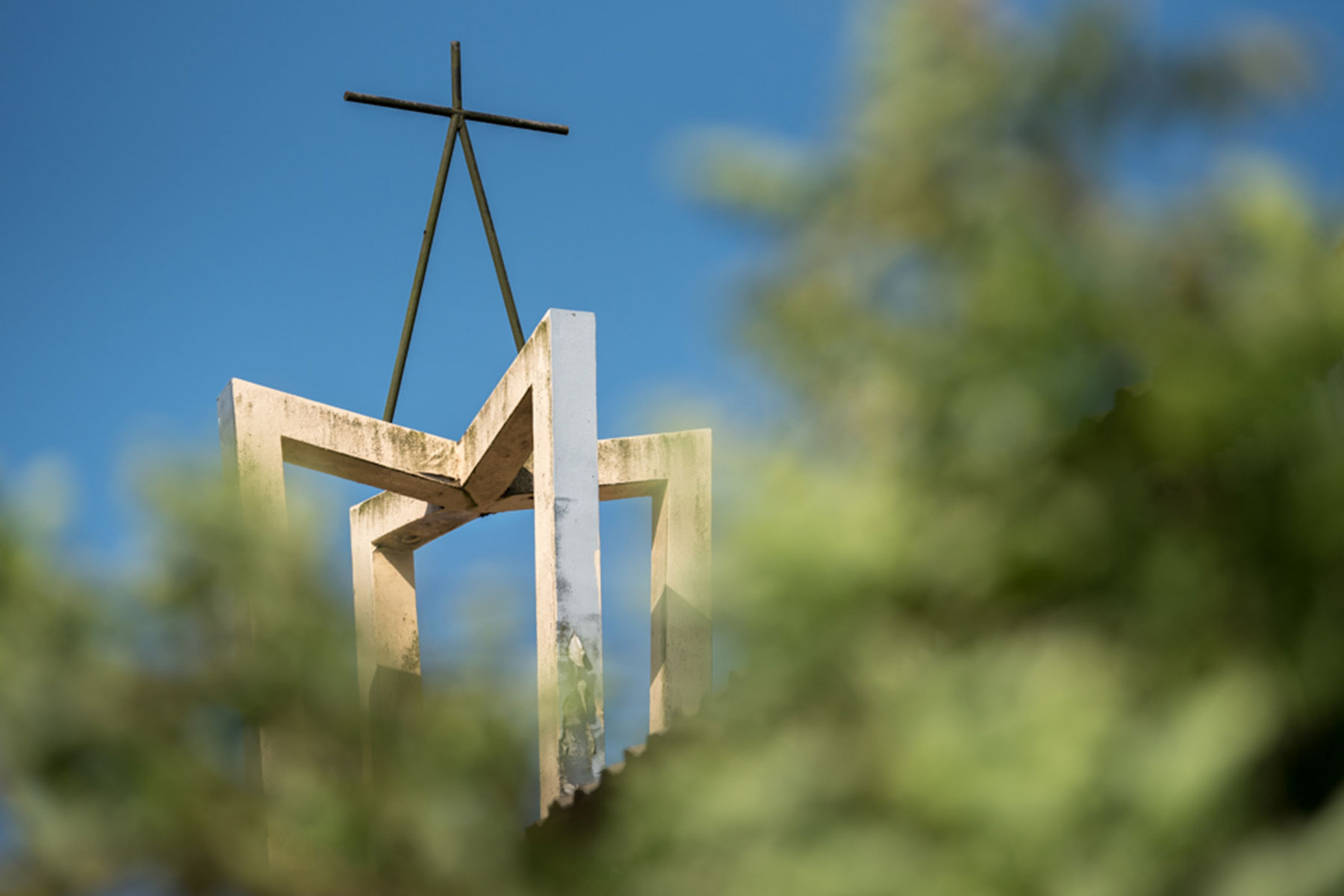
The tower of Saint Peter Lutheran Church in Monrovia, known as the site of the 1990 Monrovia Church Massacre, in which some 600 people were killed, during the First Liberian Civil War.
The Liberia Council of Churches implements Waking the Giant in Liberia. It does so in a country that has yet to mark two decades since civil war last raged, and outside the town of Kakata not far from Monrovia, is an area still referred to locally as ‘the buffer zone’ – where people from two sides of the conflict would meet to trade during the last civil war.
At the same time, the country’s economy continues to pose major challenges, with estimates placing more than half of the population below the national poverty lines.
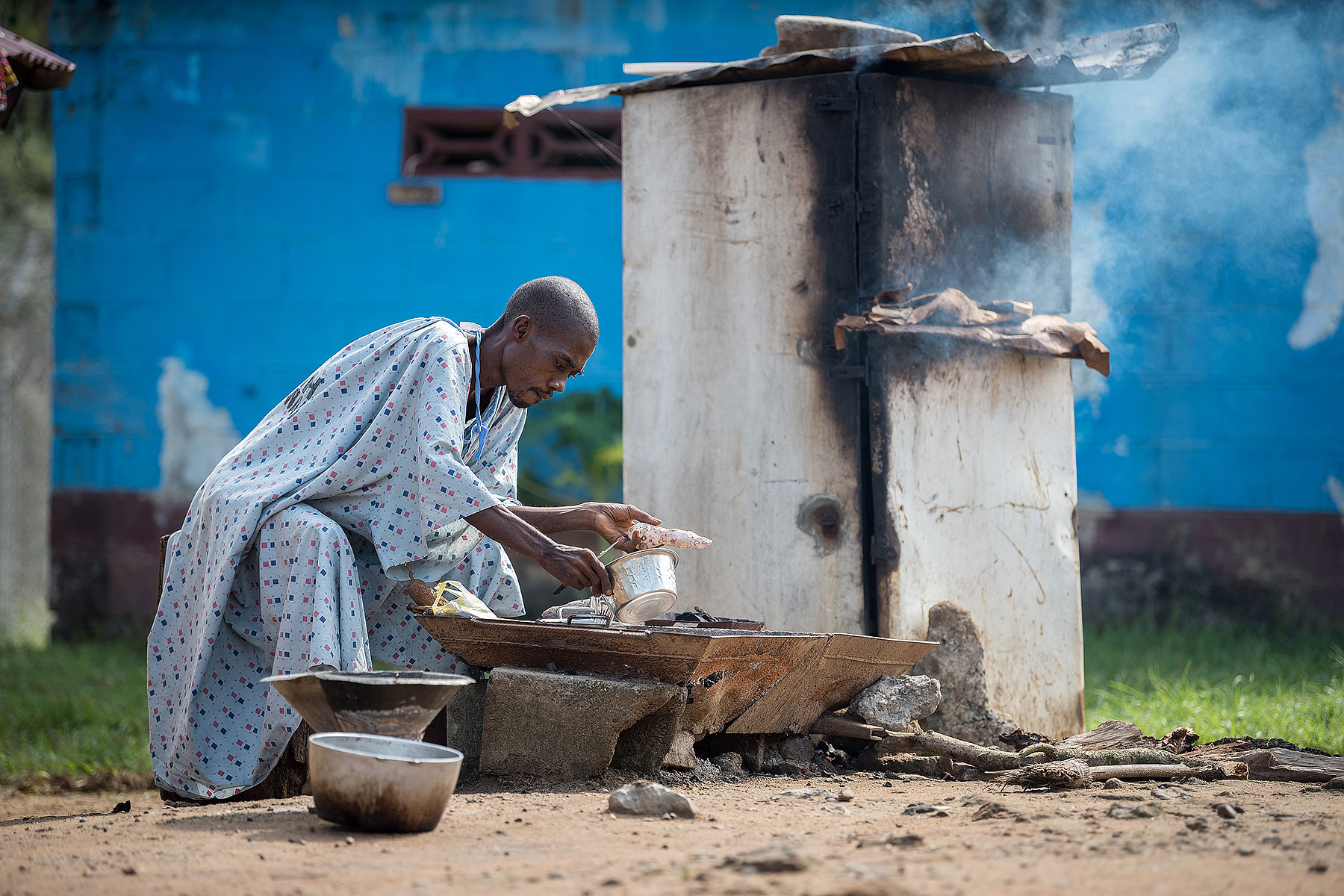
A male patient at the Ganta United Methodist Hospital prepares a meal. The hospital provides kitchen facilities for patients who wish to cook for themselves during their stay.
George T. Sannah Jr, chairman of the LCC youth desk, speaks to the way youth will be pivotal to the achievement of SDGs in Liberia.
“In Liberia, the LCC mobilizes youth around Waking the Giant, through field trainings, awareness raising, and also empowerment of young women,” Sannah explains.
‘Seeing that one of the SDGs is on gender equality, we’ve thought that at the level of LCC, young women should become more involved. We can see that in our churches almost all of the leaders are male. And we want to encourage women to know that they have the gifts and the talents. What a man can do, a woman can also do,” he continues.
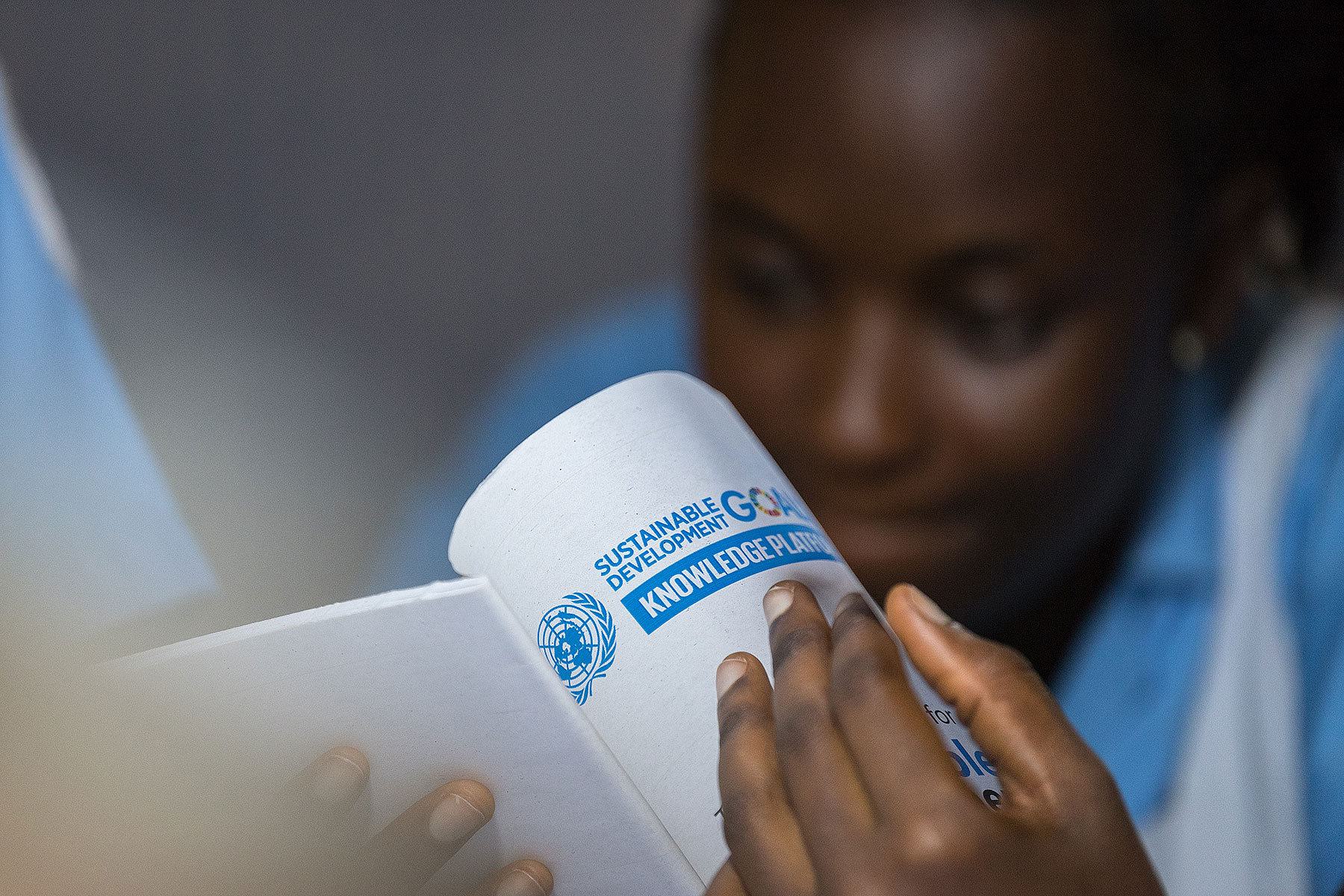
A female nurse at Ganta United Methodist Hospital reads about the SDGs.
“But as youth, we feel that we also want to take ownership of this, because if you look at the SDGs and we say that by 2030 these goals shall be met, who will carry out these goals? It will be the young people,” Sannah reflects.
Healthcare at heart of ministry in Liberia
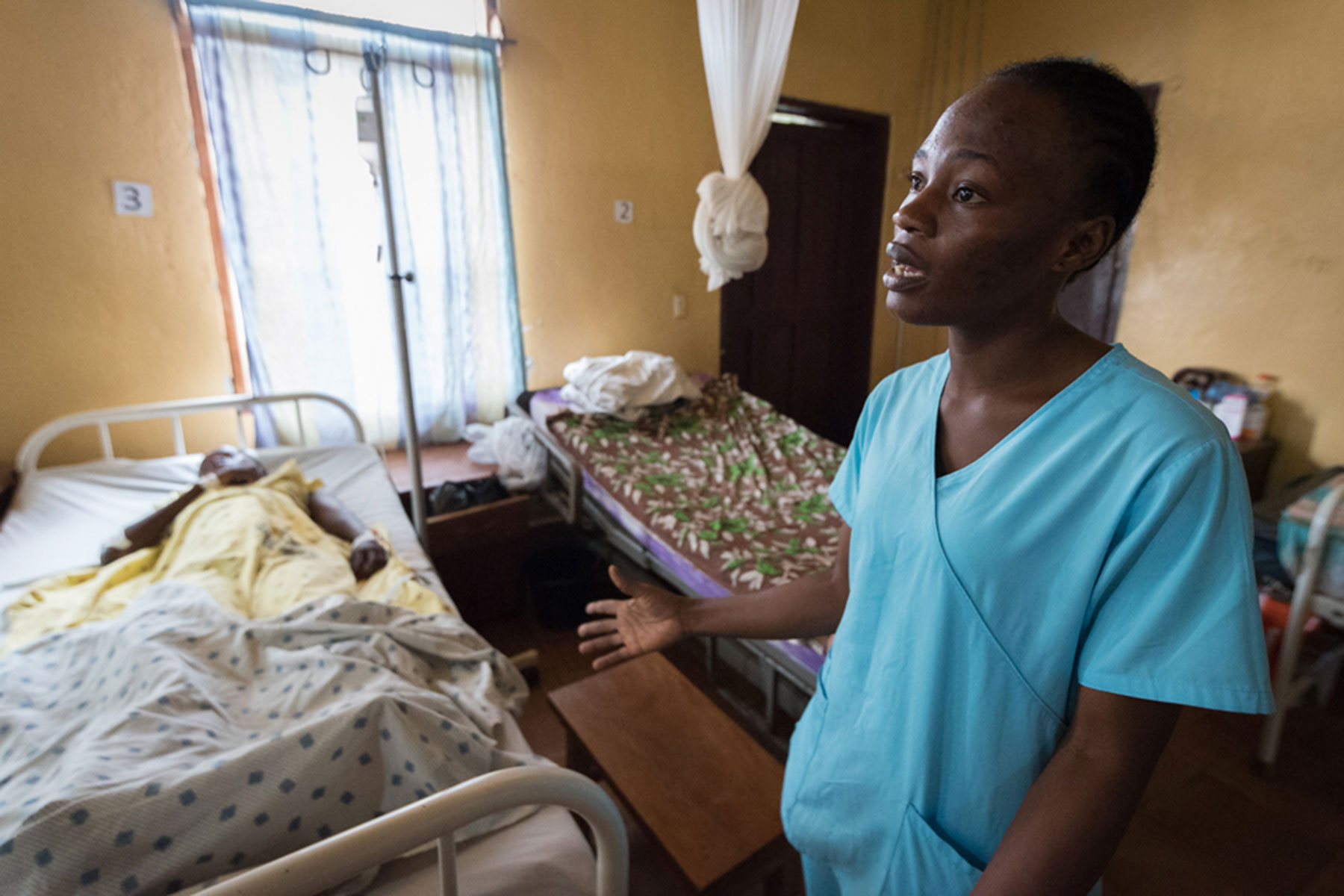
Ganta Hospital nurse Loretta Nyawonse tends to a young female patient recovering from surgery.
The Church’s social ministry in Liberia runs back a long time, and the Christian Health Association of Liberia (CHAL) has taken on a leading role in heading the health segment of LCC and the implementation of Waking the Giant for SDG 3 – on Good Health and Well-Being – in Liberia.
Nelson N. Diakpo II serves as county field officer of CHAL in Nimba county, where the Ganta United Methodist Hospital serves tens of thousands of patients each year – a hospital that is also a founding member of CHAL.
In view of the LCC’s health work, Diakpo describes a wide range of initiatives to strengthen access to appropriate healthcare across the country.
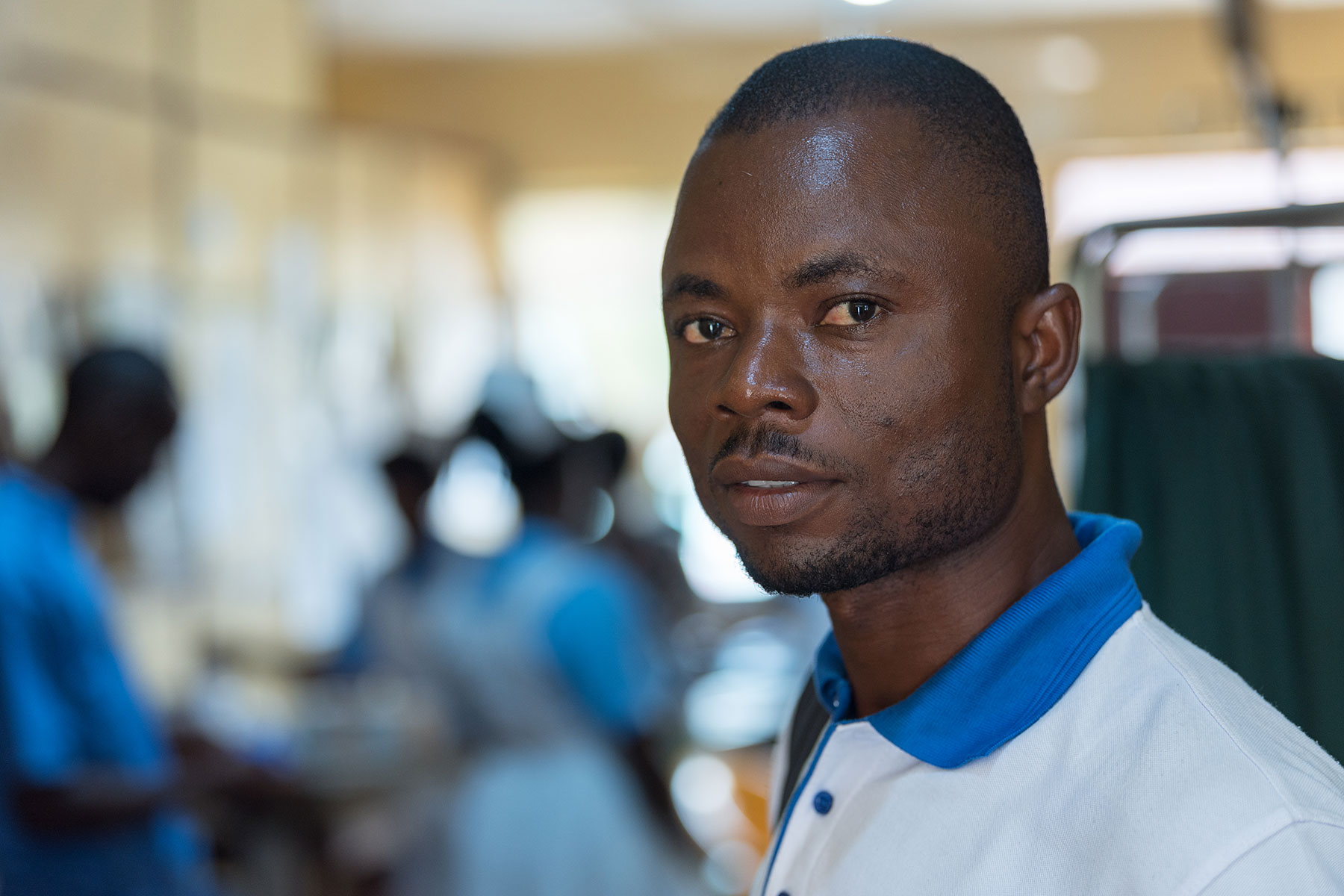
Nelson N. Diakpo II serves as county field officer of CHAL in Nimba county.
“For one thing, as CHAL we are involved in capacity building, in making sure we have qualified personnel on the ground,” Diakpo explains.
“We build capacity on psychological support, in maternal and child health – as in Liberia we have seen a recent increase in maternal mortality – we work alongside member institutions to ensure they can respond to these issues. And we offer capacity building also for community members,” Diakpo adds.
“We find it a mandate from Jesus, to provide healing in whatever possible way we can, even when times are tough” adds Rev. Victor Padmore, acting administrator of Phebe Hospital in neighbouring Bong County.
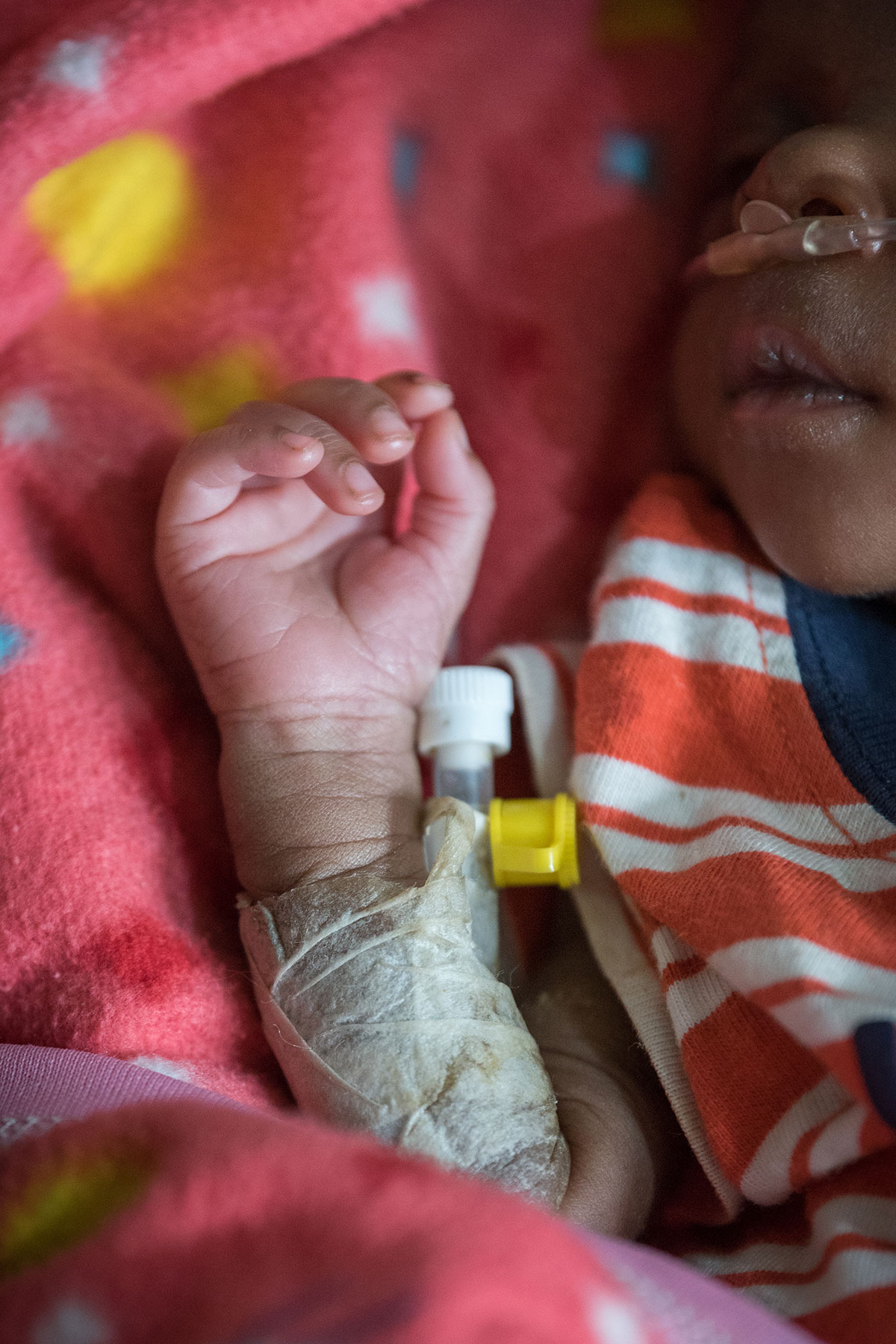
A child born in the seventh month of pregnancy receives support at Phebe Hospital, Liberia.
A government referral hospital managed by staff from the Lutheran Church in Liberia, Phebe has seen not just Ebola but a range of tropical diseases threaten lives in nearby communities.
“We are living and working among a group of people who will get sick, and it is our responsibility to see how we can provide healing, as Jesus did, through our health ministry,” Padmore reflects.
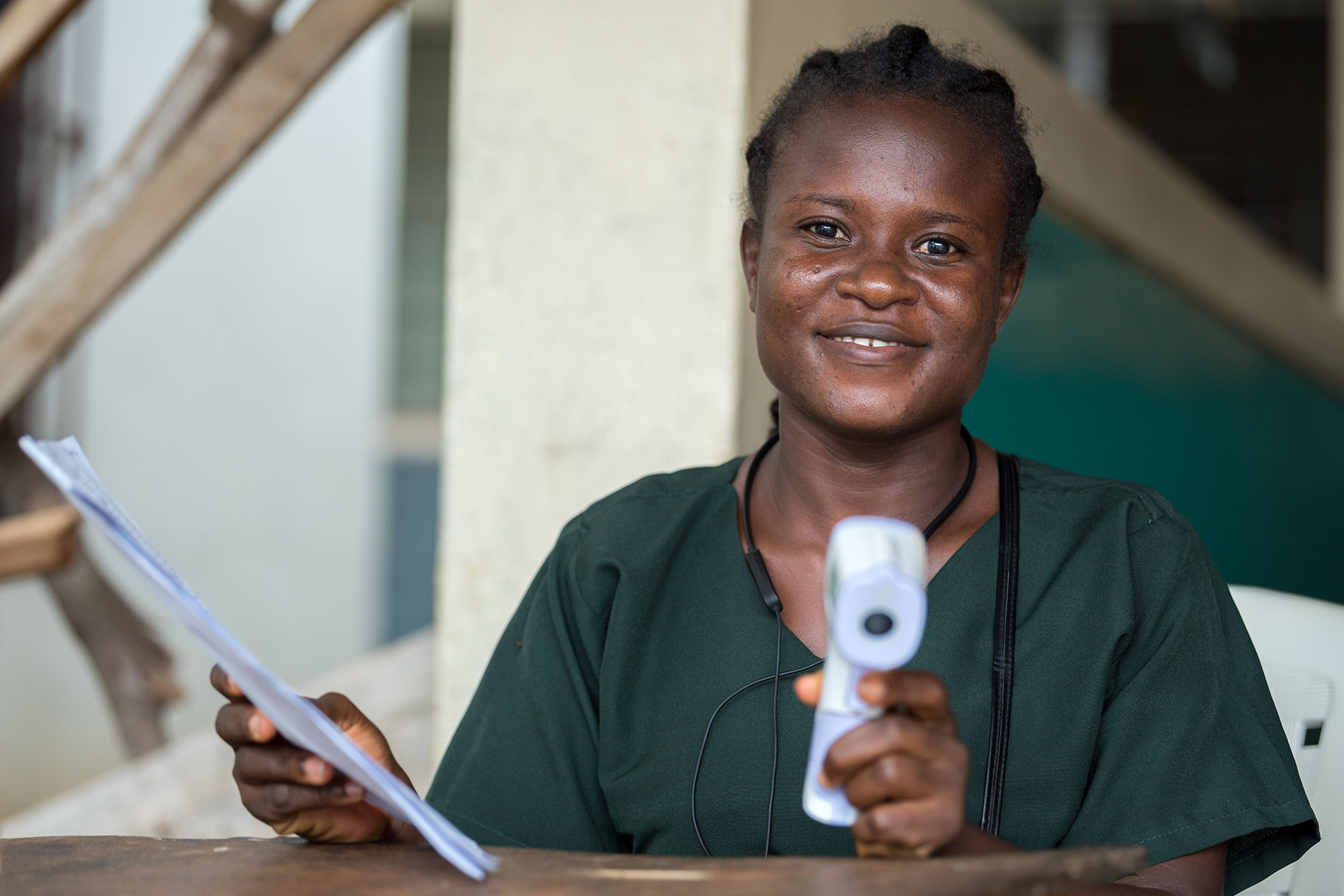
Sarah T. Kollie checks all new arrivals for fever at the emergency entrance of Phebe Hospital, in an effort to prevent the spread of tropical diseases such as Ebola.
But what is more, Padmore continues, “some of them don’t even know where to go, who to ask, how to manage, so somebody has to be there as a spokesperson for them. That’s why I feel good, that the church is engaged in such an endeavour,” he continues.
Rev. York reflects in conclusion, “with the 2030 agenda, people have to recognize that the church is a partner, the church has a stake in what the UN does. It’s not the church on one side, and the UN and the Government on the other side.”
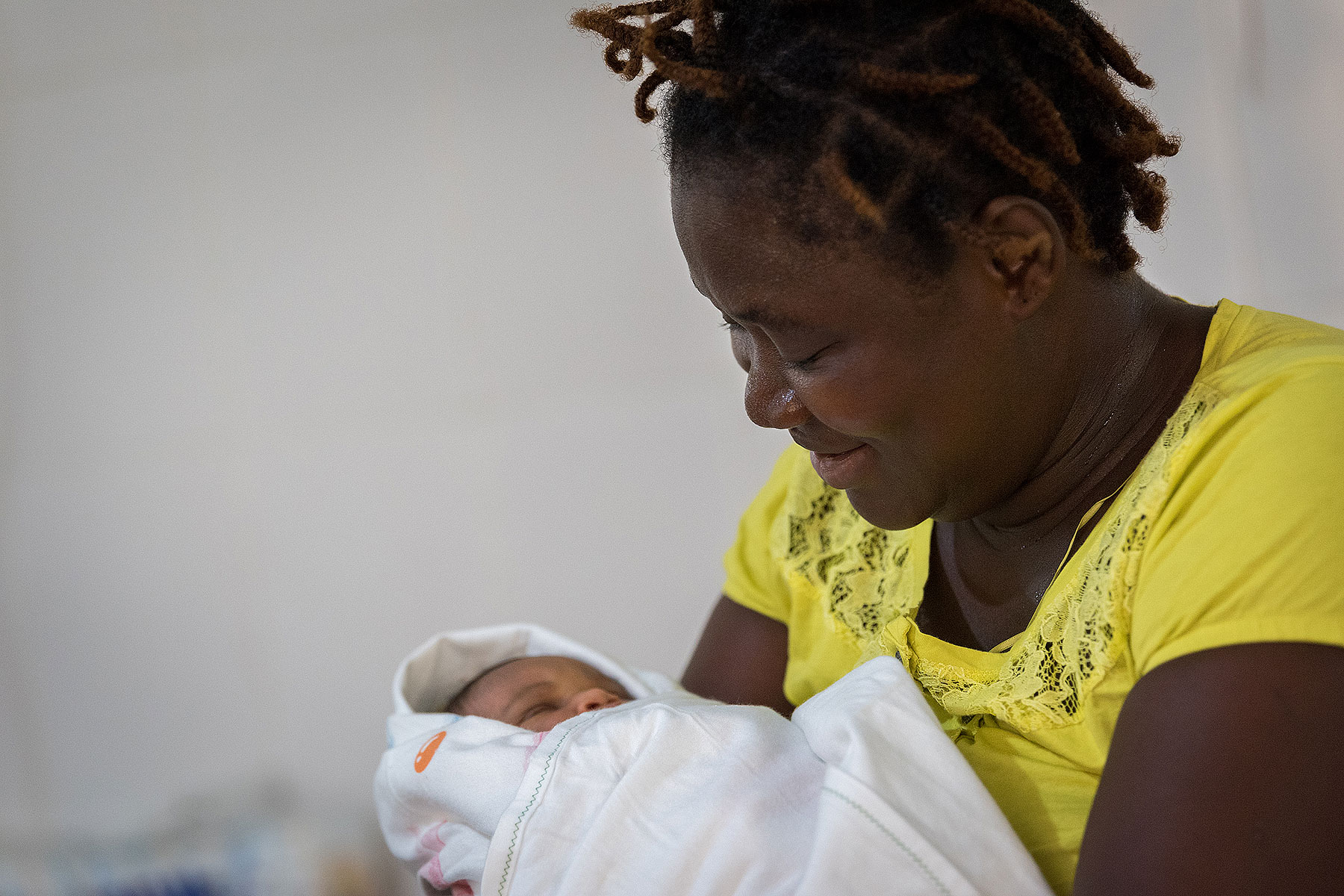
Rachel Zackpah from Ganta holds her two-day-old child in her arms.
“What the Waking the Giant does is for the church – from the grassroots level through the hierarchy of the church – to be part and parcel, and all on board, in leaving no one behind,” says York.
Written by Albin Hillert.




